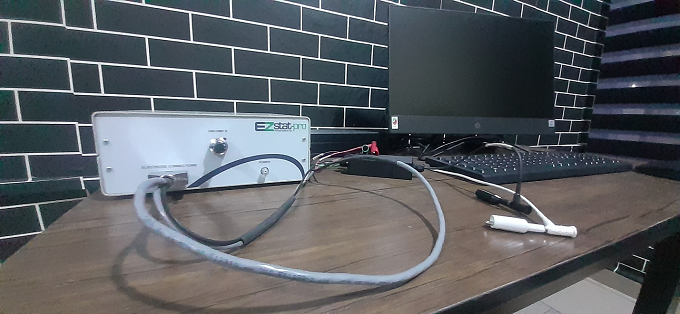
Research projects on electrochemical technologies at the Centre are focused on electrochemical energy conversion and storage systems (Solar cells, Fuel cells, Batteries, Supercapacitors), including 3-D printed solar cells and 3-D printed graphene-based energy storage devices. These devices are indispensable enabling technologies for storage and transmission of electricity from renewable energy, with market demand in the multibillion US Dollar range. We are also interested in development of new carbon-based materials for electrochemical devices, from abundant local carbonaceous materials and agricultural wastes. Research shall also explore Nigerian rich biodiversity to develop locally produced nanomaterials for applications in electrochemical storage devices, bioethanol in proton exchange membrane and solid oxide fuel cells. We are interested in developing new conversion technologies to enable more innovative exploitation of the starch-rich process water from cassava processing plants, including design and fabrication of a prototype “indirect fuel cell” device. Environmental electrochemistry research focus is on design and fabrication of electrochemical sensors of different dimensions, including 3-D printed electrochemical sensors for environmental monitoring, as well as electrochemical detection for the monitoring of corrosion inhibitors. We are focusing on electrochemical treatment of wastewater via electrolysis, advanced oxidation processes and heterogeneous photocatalysis using different semiconductor electrodes. We are as well interested in the electrokinetic remediation of contaminated soils and sediments, metal recovery and electrochemical effluent gas treatment.
Graduate students with training in electrochemical science and technology find ready career opportunities with international relevance in such industrial sectors as utilities, transportation, aerospace, automobile, aviation, chemical, petrochemical, oil and gas, metallurgical, pulp and paper, pharmaceutical, natural resources, environmental protection, new products development, etc., as Industry R&D scientist, industrial management, founder of startup company, industrial consultant, government specialist. PhD degree in nanotechnology prepares students for careers in the academia, industrial R&D, government and regulatory laboratories.